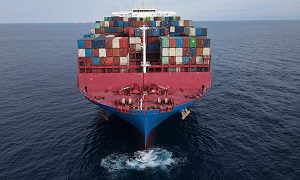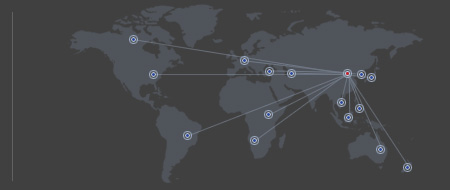

E-mail: demi.wang@orient-rich.com
ADD: Room1001,10Floor, Cherry Mansion, No.2 Nanjing Road,Qingdao, China.

Vincent Clerc, CEO of Danish shipping giant Maersk, pointed out in an interview that global trade is showing signs of recovery, but unlike this year's inventory adjustment, the rebound next year is mainly driven by rising consumer demand in Europe and America.
Ko Wensheng, who only took over Maersk this year, pointed out in an interview with US financial media CNBC last week that unless there are any negative surprises, we hope that demand can slowly recover after entering 2024. This is different from the prosperity we have known in the past few years, but it can be confirmed that demand mainly comes from the consumer side and is not so closely related to inventory adjustments.
Ke Wensheng stated that European and American consumers are the main drivers of this wave of trade demand rebound, and the European and American markets continue to show "amazing rebound momentum". Given the warehouse being filled with unsold goods, low consumer confidence, and supply chain bottlenecks, Maersk warned of weak shipping demand last year.
Ke Wensheng pointed out that even though the economic situation is difficult and severe, emerging markets still show resilience, especially in India, Latin America, and Africa. North America and other major economies faltered due to macroeconomic factors such as the Russia-Ukraine conflict and the Sino US trade war, but North America is expected to show strong performance next year. Ke Wensheng said that when the situation begins to normalize and the problem is resolved, we will see a rebound in demand. Emerging markets and North America are the areas we believe have the greatest potential for recovery.
But the President of the International Monetary Fund (IMF), Kristalina Georgieva, is not so optimistic. In an interview with CNBC on the sidelines of the G20 summit in New Delhi on the 10th of this month, she said that the path to boosting global trade and economic growth may not be smooth, and as seen so far, it is even very unsettling.
She said: Our world is going against globalization, with global trade expanding at a slower pace than global economic growth for the first time. Global trade growth is 2%, and the economic growth rate is 3%. George Ava pointed out that if we want trade to once again serve as an engine of economic growth, we need to build bridges and create opportunities.
Specifically, the first is to reduce the stock, strictly control the increment, and resolve the excess capacity. To reduce the stock is mainly to subsidize the scrapping and renewal of old transport ships and single hull oil tankers in advance, and to support the shipowners association to organize the shipping enterprises to seal part of the transport capacity. Strictly control the increment mainly means to strictly control the newly increased business entities and capacity of passenger transport and dangerous goods transport in the coastal areas and the Yangtze River trunk line.
Second, strengthen policy guidance and promote transformation and upgrading. We will encourage enterprises to merge and restructure, standardize shippers' investment in the domestic shipping industry, and improve market access standards. China's convenient flag cruise lines are allowed to be attached at multiple points along the coast, and four cruise routes across the Straits are supported. We will vigorously develop modern shipping services such as shipping finance, insurance and maritime arbitration. Steadily promote the application of LNG in the shipping industry.
Third, strengthen market supervision and create a good environment. At the same time of reducing administrative license, we should innovate management methods and strengthen dynamic management. It mainly includes supporting the shipowners association to strengthen the industry self-discipline, establishing the accurate reporting system of container liner rates, and strengthening the investigation of suspected monopoly of the joint operation of container liner companies.
Fourth, standardize the charges of enterprises and reduce the burden of enterprises. A number of charging items involving shipping enterprises and operating ships have been regulated. It mainly includes cancelling or exempting 10 specific charging items of 7 types of administrative fees, cancelling or suspending 4 regulatory service fees or regulations related to fees, taking measures to adjust the ship transaction fees, reduce the pilotage fees, and regulate the port fees.
Fifth, improve service measures and improve service level. We will promote the unified management of online administrative licensing, filing and certificates. The liability guarantee of pilot NVOCC shall be replaced by bank guarantee. We will strengthen the dynamic monitoring of the shipping market and the analysis of the economic operation of water transportation, and regularly release market information such as transportation capacity. Promote "sunshine pilotage" and gradually cancel the compulsory pilotage of domestic trade ships entering the river.




